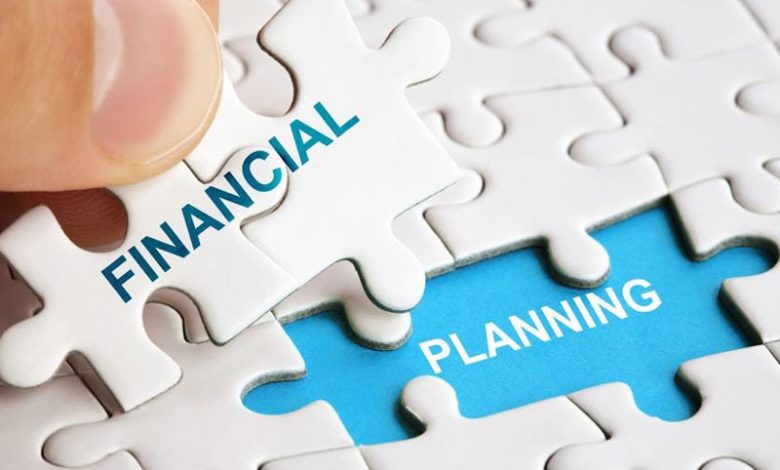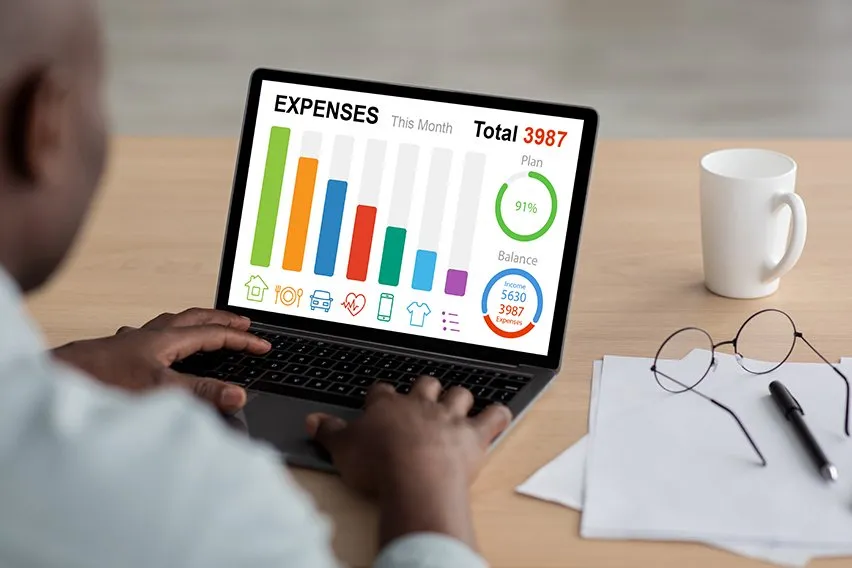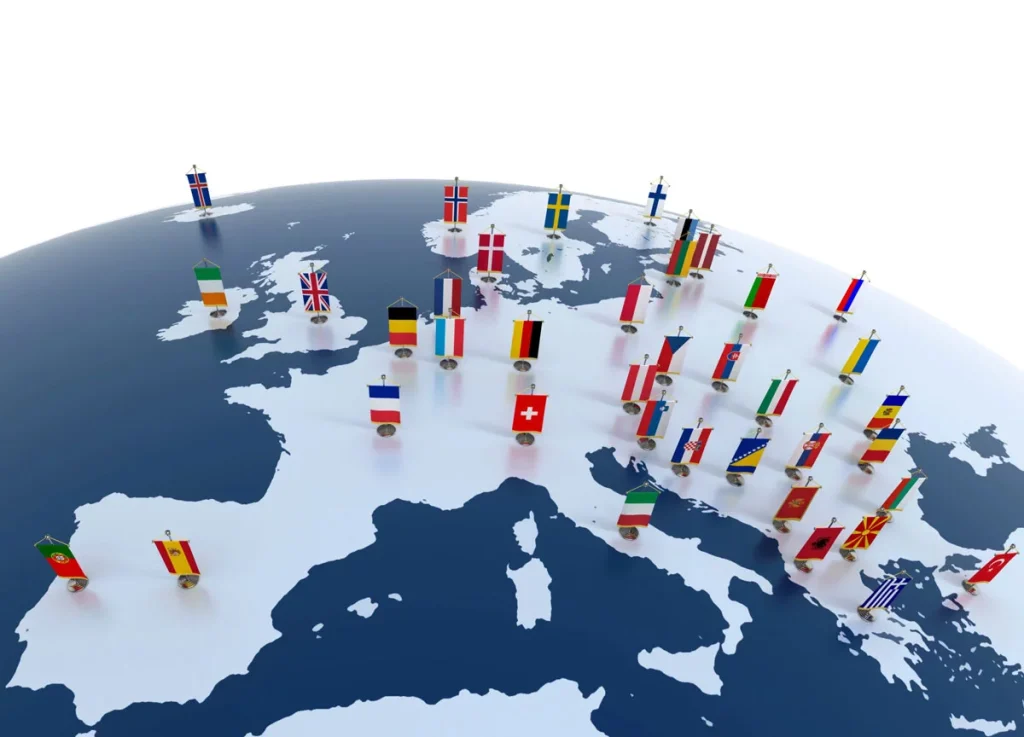Financial Planning for Freelancers and Digital Nomads

Financial planning for freelancers and digital nomads is essential for achieving stability, growth, and freedom in a world where income is often unpredictable and expenses can vary widely. This comprehensive guide will help you understand every aspect of managing your money on the move, from budgeting and taxes to investing, insurance, and real-life case studies.
Introduction to Financial Planning for Freelancers and Digital Nomads
Financial planning for freelancers and digital nomads means creating a system to manage your money, reach your goals, and ensure security even when your income and location change regularly. Unlike traditional employees, freelancers and nomads must handle everything—from taxes to retirement—on their own.

Key Features of Financial Planning for Freelancers and Digital Nomads
- Flexible budgeting for variable income and expenses.
- Expense tracking using apps and spreadsheets.
- Tax planning for multiple jurisdictions and self-employment.
- Emergency fund to cover 3–6 months of living costs.
- Retirement savings without employer contributions.
- Insurance for health, liability, and travel emergencies.
- Banking solutions for international transactions and currencies.
- Investment strategies for long-term growth.
Why Financial Planning Is Crucial
- Irregular income: Freelancers and nomads rarely have a steady paycheck, making planning vital.
- No employer benefits: Health insurance, retirement plans, and paid leave must be self-managed.
- Complex taxes: Working across borders or as a contractor brings extra tax responsibilities.
- Financial independence: Smart planning enables freedom and security, even in lean months.

Budgeting Strategies
The 50/30/20 Rule
- 50% – Needs (housing, food, insurance)
- 30% – Wants (travel, entertainment)
- 20% – Savings and investments
Zero-Based Budgeting
Pay-Yourself-First
Tools
- Use budgeting apps like YNAB, PocketGuard, or NomadWallet for real-time tracking.
- Spreadsheets for manual tracking and planning.
Managing Irregular Income
- Base your budget on your lowest earning months to avoid shortfalls.
- Diversify income streams (multiple clients, side projects, passive income).
- Save windfalls from high-earning months for leaner times.
Expense Tracking and Management
- Categorize expenses: Fixed (rent, insurance) vs. variable (travel, food).
- Review regularly: Adjust your budget as your income and expenses change.
- Track every expense: Use apps or spreadsheets to monitor spending and identify savings.

Taxes and Compliance
- Set aside 25–30% of income for taxes.
- Track deductible expenses: Travel, equipment, insurance, home office.
- Understand local and international tax laws: Consider consulting a tax advisor for compliance in multiple countries.
- File quarterly estimated taxes to avoid penalties.
Insurance and Risk Management
- Health insurance: Find plans that cover you internationally.
- Liability insurance: Protects against client disputes or legal claims.
- Travel insurance: Covers medical emergencies, trip cancellations, and lost belongings.
- Income protection: Consider disability or critical illness insurance for added security.

Saving and Investing
- Emergency fund: Save 3–6 months of expenses in a high-yield account.
- Retirement savings: Use IRAs, SEP-IRAs, or solo 401(k)s for long-term growth.
- Investments: Diversify into stocks, bonds, real estate, or digital assets.
- Automate savings: Set up automatic transfers to savings and investment accounts.

Banking and Currency Solutions
- Choose banks with low or no foreign transaction fees (e.g., Wise, Charles Schwab).
- Multi-currency accounts help manage different currencies and reduce exchange fees.
- Use online payment platforms for easy access and global transfers.
Emergency Funds and Contingency Planning
- Build an emergency fund before starting your freelance or nomad journey.
- Plan for worst-case scenarios: Medical emergencies, sudden loss of income, or travel disruptions.
- Keep funds accessible: Use accounts you can access from anywhere in the world.
Case Studies: Real-World Examples
The Budgeting Web Designer
Sarah, a freelance web designer, uses the 50/30/20 budgeting rule. She tracks all expenses in an app, sets aside 30% for taxes, and saves for retirement through a SEP-IRA. During slow months, her emergency fund covers living costs.
The Traveling Copywriter
James, a digital nomad copywriter, uses Wise for multi-currency banking and keeps detailed records for tax filings in multiple countries. He invests in index funds for long-term growth and uses travel insurance for peace of mind.
The Remote Family
Corritta and her family saved $50,000 before becoming full-time nomads. They cut expenses, paid off debt, and built a blog for extra income. Their careful planning allows them to travel with a safety net.
The Graphic Designer’s Wake-Up Call
Raj, a freelancer, faced a medical emergency that wiped out his savings. He learned to budget based on average income, track expenses, and prioritize building an emergency fund, transforming his finances.
The Multi-Client Consultant
Maria, a freelance consultant, diversifies her clients to avoid income gaps. She uses zero-based budgeting and automates savings to ensure she never misses her retirement contributions.
The Digital Nomad Investor
Marcus, a financial advisor, manages investments across borders and keeps emergency funds in multiple currencies. He uses online communities for advice on tax laws and investment opportunities.
The Start-Up Entrepreneur
Joe, a tech entrepreneur, faces fluctuating income from his business. He tracks all income and expenses, sets revenue goals, and uses a financial advisor to optimize tax strategies and investments.
The Family of Three
Katherine, her husband, and their child saved for two years before traveling. They chose affordable destinations, tracked every expense, and built a freelance writing business to support their lifestyle.
Pros and Cons Table
| Pros | Cons |
|---|---|
| Flexibility and independence | Irregular income |
| Potential for higher earnings | No employer benefits |
| Opportunity to travel and explore | Complex taxes and compliance |
| Control over work-life balance | Need for self-discipline and planning |
| Ability to diversify income streams | Risk of financial instability |
| Access to global markets and clients | Must self-manage insurance and retirement |

Tips for Success
- Start with a clear budget and update it regularly.
- Track all income and expenses for better control.
- Save aggressively during high-earning months.
- Diversify your income sources to reduce risk.
- Invest in insurance and retirement plans early.
- Use technology (apps, online banks) for efficiency.
- Plan for taxes and set aside funds monthly.
- Network with other freelancers and nomads for support and advice.
- Stay informed about local laws and tax rules in every country you work.
- Review and adjust your financial plan as your lifestyle and goals evolve.
Advanced Financial Planning for Freelancers and Digital Nomads
Financial Planning for Freelancers and Digital Nomads: Advanced Budgeting Tools
Using Technology to Simplify Money Management
Modern freelancers and digital nomads have access to a range of digital tools that make financial planning easier and more accurate. Here are some top options:
| Tool/App | Main Feature | Best For | Cost |
|---|---|---|---|
| YNAB | Zero-based budgeting | Detailed budgeting | Paid |
| Mint | Automatic expense tracking | Beginners | Free |
| Wise | Multi-currency banking | International payments | Low fees |
| QuickBooks Self-Employed | Tax and invoice management | Tax prep, freelancers | Paid |
| Expensify | Receipt scanning | Frequent travelers | Free/Paid |
Tip: Always choose tools that sync with your bank accounts and allow you to export data for tax reporting.
Financial Planning for Freelancers and Digital Nomads: Building Multiple Income Streams
Why Diversification Matters
Relying on a single client or job can be risky. Building multiple income streams protects you from sudden income drops and opens new opportunities.
Common Income Streams for Digital Nomads:
- Freelance services (writing, design, programming)
- Online courses or coaching
- Affiliate marketing
- Blogging or YouTube ad revenue
- Remote consulting
- Selling digital products (eBooks, templates)
- Investing (dividends, interest from savings)
Quote:
“Don’t put all your eggs in one basket—especially when your basket travels with you.” — Anonymous digital nomad
Financial Planning for Freelancers and Digital Nomads: Tax Optimization Strategies
Smart Moves to Reduce Your Tax Burden
- Track All Deductions: Expenses like coworking spaces, travel for work, equipment, and software can often be deducted.
- Understand Double Taxation: If you work in multiple countries, research tax treaties to avoid paying twice.
- Hire a Specialist: An accountant familiar with digital nomad taxes can save you money and stress.
Practical Example:
Maria, a freelance marketer, uses QuickBooks to log every business expense and works with a cross-border tax advisor. She saved over $2,000 last year by claiming legitimate deductions.
Financial Planning for Freelancers and Digital Nomads: Retirement Planning on the Move
Planning for the Future Without a Traditional Employer
- Open a retirement account that suits your country of residence (IRA, SEP-IRA, or local equivalent).
- Automate monthly contributions, even if small.
- Consider global investment platforms for flexibility.
- Review your retirement plan annually and adjust for inflation and income changes.
Case Study:
David, a software developer, started investing $200/month in a global ETF portfolio. After five years, his investments grew steadily, providing security for his future travels.

Financial Planning for Freelancers and Digital Nomads: Managing Healthcare and Insurance
Staying Protected Around the World
- International Health Insurance: Choose a policy that covers emergencies, routine care, and repatriation.
- Travel Insurance: Covers lost luggage, trip cancellations, and some medical emergencies.
- Income Protection: Disability insurance can provide income if illness or injury prevents you from working.
Tip: Compare plans from providers like SafetyWing, IMG, or Allianz for global coverage.
Financial Planning for Freelancers and Digital Nomads: Navigating Currency Fluctuations
Protecting Your Earnings from Exchange Rate Risks
- Use multi-currency accounts to hold and spend in different currencies.
- Convert money only when rates are favorable.
- Invoice clients in stable currencies (USD, EUR) when possible.
Table: Impact of Currency Fluctuations on Income
| Month | USD Earnings | Local Currency Rate | Local Earnings (Converted) |
|---|---|---|---|
| Jan | $2,000 | 1 USD = 1.3 Local | 2,600 |
| Feb | $2,000 | 1 USD = 1.2 Local | 2,400 |
| Mar | $2,000 | 1 USD = 1.4 Local | 2,800 |
Financial Planning for Freelancers and Digital Nomads: Building Financial Resilience
Developing Habits for Long-Term Success
- Review your finances monthly.
- Set clear financial goals (buying a home, saving for a sabbatical).
- Join online communities for support and advice.
- Keep learning—financial literacy is a lifelong journey.
Quote:
“The best investment you can make is in yourself.” — Warren Buffett
Financial Planning for Freelancers and Digital Nomads: Tips for Every Stage
- Start small, but start now—don’t wait for “perfect” conditions.
- Automate as much as possible (savings, investments, bill payments).
- Regularly review and adjust your financial plan.
- Network with others for new ideas and inspiration.
- Never neglect insurance or emergency funds.
Financial Planning for Freelancers and Digital Nomads: Resources and Communities
- Nomad List: For destination research and networking.
- Reddit (r/digitalnomad): For advice and real-world stories.
- Freelancers Union: For insurance, legal, and financial resources.
- Local meetups: For support and collaboration.
Frequently Asked Questions (FAQ)
1. How do I budget with unpredictable income?
Base your budget on your lowest earning months and save any extra income for lean periods.
2. What’s the best way to track expenses?
Use budgeting apps or spreadsheets to categorize and monitor every expense.
3. How much should I save for taxes?
Set aside 25–30% of your income for taxes, and consult a tax advisor for complex situations.
4. Do I need special insurance as a freelancer or digital nomad?
Yes, consider health, liability, and travel insurance for comprehensive protection.
5. How can I save for retirement without an employer?
Open an IRA, SEP-IRA, or solo 401(k) and automate contributions each month.
6. What banking solutions are best for digital nomads?
Choose banks with low fees and multi-currency accounts, like Wise or Charles Schwab.
7. How big should my emergency fund be?
Aim for 3–6 months of living expenses in an easily accessible account.
8. How do I handle taxes in multiple countries?
Keep detailed records, consult tax professionals, and stay informed about local laws.
9. What are the biggest financial risks for freelancers and nomads?
Irregular income, lack of benefits, unexpected expenses, and complex taxes.
10. How can I increase my financial stability?
Diversify income, save aggressively, track expenses, and invest in insurance and retirement plans.
Conclusion
Financial planning for freelancers and digital nomads is not just about surviving—it’s about thriving. By mastering budgeting, tracking expenses, planning for taxes, and protecting yourself with insurance and savings, you can enjoy the freedom and adventure of this lifestyle with confidence and peace of mind




